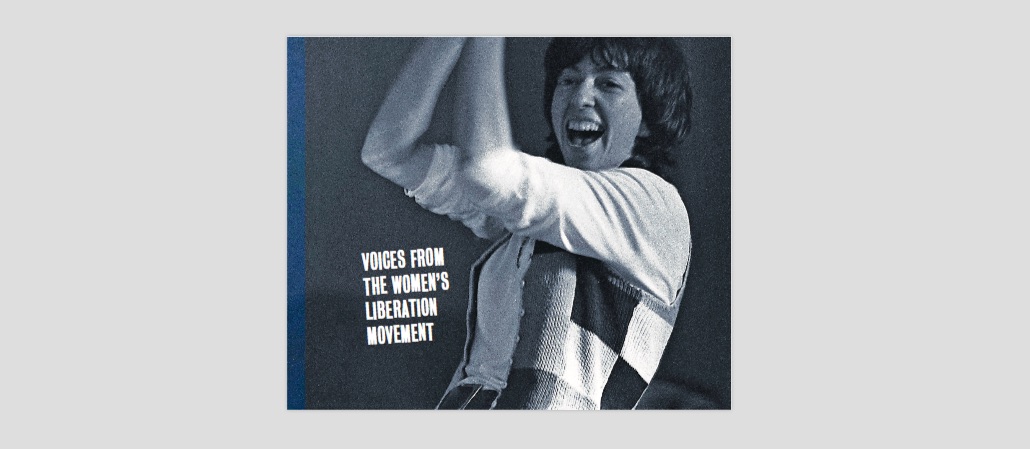—Joyce Antler
As we approach the 100th anniversary of the 1920 suffrage amendment giving women the right to vote, it is heartening that so many women are running for office. Local and national, Democrats and Republicans (though mainly the former), women of disparate ages, ethnicities, and experiences are throwing their hats into the political ring. The common element in their candidacies is their conviction that more than ever, women need to represent themselves on the political stage. Simply put, they believe that women’s perspectives, goals, and concerns are not the same as men’s.
This is not the first time that women explicitly pegged their political ambitions to the notion of separate and distinct women’s issues. Nor is the first time that a particularly large number of women candidates ran for office. In 1992, the so-called Year of the Woman, more women were elected to Congress than ever before. Twenty-four women candidates were elected to the House of Representatives for the first time, the largest number elected to that chamber in any single election, while the number elected to the Senate in the 103rd Congress tripled the previous number.
Not only the number of women running this election cycle, but the range and depth of their issues, is impressive. Fifty years after the start of the women’s liberation movement—that extraordinary branch of second-wave feminism that called for a total restructuring of society in order to root out pervasive elements of sexist oppression—many female political aspirants have come to embrace a basic insight of radical feminists: that an effective, people-first politics must reflect the deepest elements of culture and consciousness. For radical feminists, authentic politics could not be matters of special interests or even broad political principles. Rather, at its truest level political activism meant representing common understandings that could be discovered only by going to the original sources—people themselves—and listening as each shared her story. Consciousness-raising—penetrating to the core of experiences—would then naturally result in action and lead to profound change.
Elissa Slotkin, running for Congress in Michigan’s important 8th District, exemplifies the new political awareness among savvy women candidates. A former defense official in the George W. Bush and Obama Administrations who served three tours of duty in Iraq as an Arabic-speaking Central Intelligence Agency analyst, the 42-year-old Slotkin is said to be running from the right end of the Democratic party spectrum. Yet Slotkin, who won her party’s August primary with 70% of the vote, has campaigned heavily on the issue of sexual assault. Taking note of the stories of 300 young female athletes and gymnasts who report they were abused by Dr. Larry Nassar at Michigan State University, which is in her district, and elsewhere, the first-time candidate faults the many schools, universities, and workplaces that have not taken women’s allegations seriously. “I feel we’re going through a generational moment right now,” Slotkin says. “And women feel like they need to do more to defend rights that they thought were understood.” Listening and learning from women’s experiences—both individually and collectively—is a crucial part of Slotkin’s candidacy. While she has an uphill battle to win the House seat back from its Republican incumbent, her unusual background and her listening skills give her a reasonable chance of victory, critical to the Democrats’ attempt to wrest control of the House in November. She is receiving strong backing from the Jewish community in West Bloomfield, where she was raised.
The prominence of sexual harassment as an issue for women seeking office that is reflected in Slotkin’s campaign suggests a changing definition of politics. In 1992, outrage over the treatment of Anita Hill during the Clarence Thomas confirmation hearings sparked the unprecedented wave of women candidates. Today, another, larger wave of women candidates has responded to the MeToo movement by including sexual harassment among their leading issues. While politics continues to be defined very traditionally (i.e., voting, participating in political parties, and seeking elective office), issues like harassment, sexual abuse, rape, and violence against women have become increasingly important public matters. As a result, the insight of women’s liberationists that personal experience must be the core ingredient of political action has gained enormous traction. Radical feminists taught their generation that telling your story and listening to the stories of others are crucial steps to politicization. Fifty years later, aspiring women office-holders are learning that bearing witness to women’s experiences may be the best route to political success.
 Joyce Antler is the author of Jewish Radical Feminism: Voices from the Women’s Liberation Movement (NYU Press, 2018).
Joyce Antler is the author of Jewish Radical Feminism: Voices from the Women’s Liberation Movement (NYU Press, 2018).

